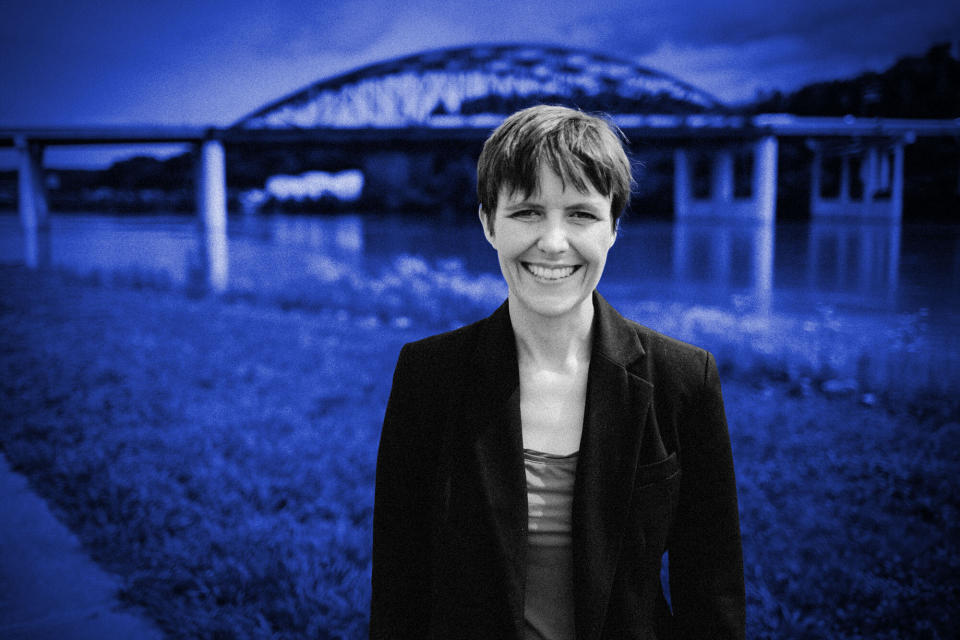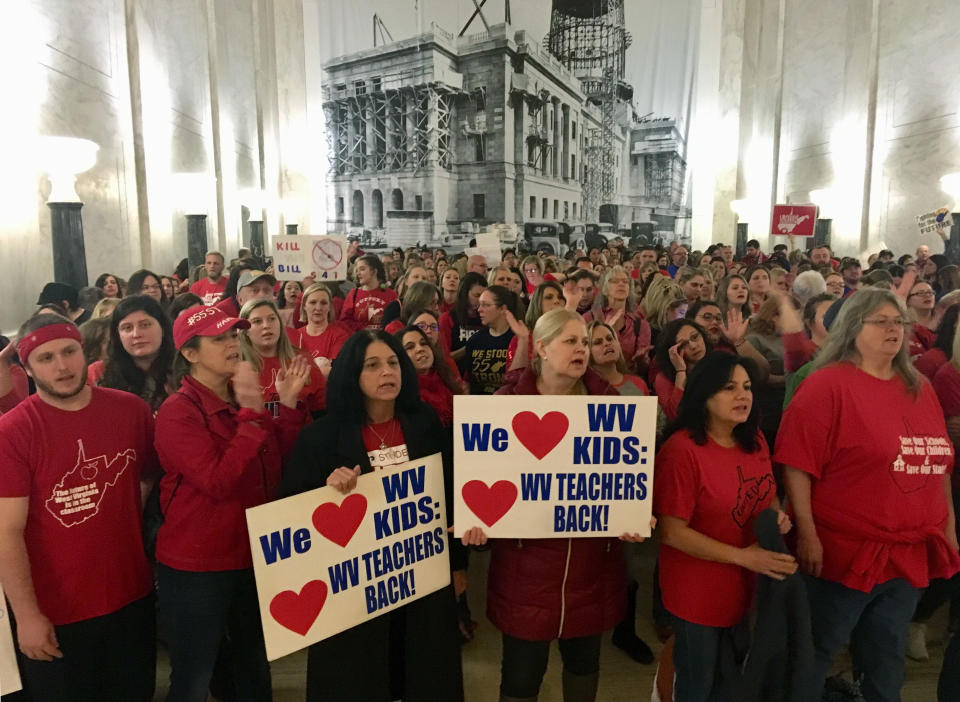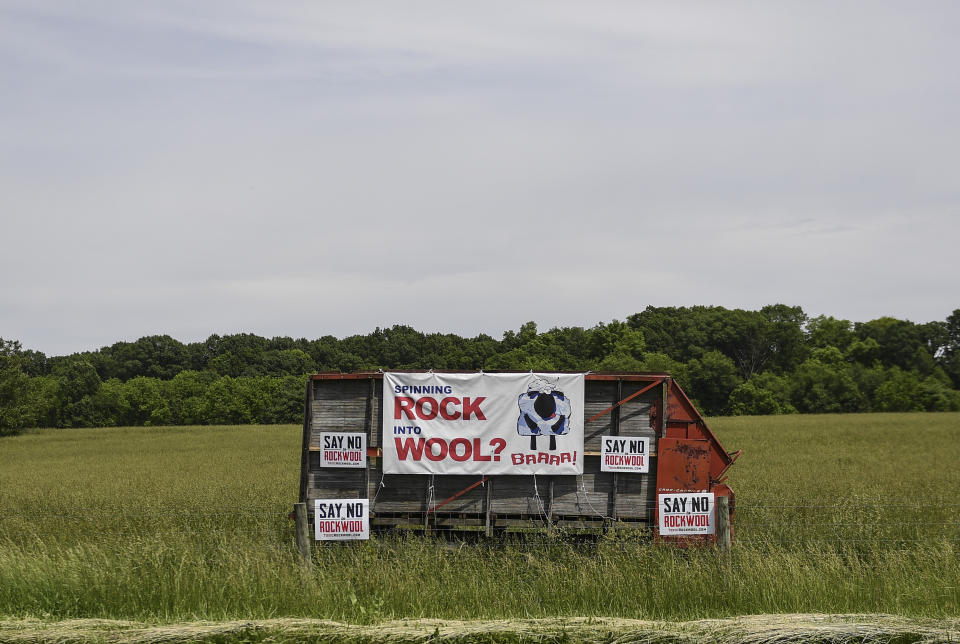This Progressive Fights In Trump Country For A House Seat Democrats Abandoned

MARTINSBURG, W.Va. ― Tucked into the foothills of the Appalachian Mountains less than 80 miles from the nation’s capital, the eastern West Virginia panhandle seems at first glance like the sort of place that might draw attention from Democratic Party officials hoping to expand their House majority in November’s elections.
The subdivided neighborhoods of Berkeley County ― West Virginia’s fastest-growing region ― look like the suburbs where Democrats prospered in the 2018 midterm elections and hope to do so again this fall. The city of Martinsburg itself is working class (median income: $40,000) and home to a sizable Black population (14.3% of its 17,000 residents), mirroring what once was the party’s traditional power base in West Virginia and nationwide.
But the national Democratic Party has decided against going all-in ― or even a little in ― on a House race in a district where President Donald Trump won 65% of the vote four years ago and will likely romp to an easy victory again this November. Democratic voters who live in the 2nd Congressional District understand that the party’s candidates face long odds here, and that the party has priorities elsewhere. Still, they note, Democrats will never win here if they don’t at least try.
“This is Trump country,” Jim Mullen, a 56-year-old Democratic voter, said as he manned the grill outside his suburban home near Martinsburg. “The [national] Democratic Party doesn’t support candidates here at all. They don’t fight here.”
“If they did,” he added, “they might be able to change things.”
Democrat Cathy Kunkel is trying.
An energy policy expert and environmental activist who lives in Charleston, the state capital that sits in the heart of Appalachia farther south, Kunkel decided to launch a bid to take down three-term Republican Rep. Alex Mooney last year, amid an outbreak of political enthusiasm and anger among voters that erupted in the form of statewide public school teacher strikes in 2018 and 2019.
The economic pain is only going to get worse here. People are looking for something that speaks to them. And if the Democratic Party is not going to, then who will? Cathy Kunkel
She is affiliated with West Virginia Can’t Wait, a slate of candidates that has sworn off corporate campaign donations and launched unapologetically progressive bids for seats up and down the Mountain State ballot. They’re pushing massive infrastructure investments, an end to mass incarceration, a re-imagining of the state’s coal-centric economy, and urgent efforts to address climate change as part of an agenda they brand as a modern-day New Deal.
But the message at the heart of the movement is right there in its name, and Kunkel, 35, and her fellow progressives aren’t ready to relinquish West Virginia and other places like it to Trumpism and the GOP, even if national Democrats already have.
“They’ve pretty much written off West Virginia,” Kunkel said of her party’s national leaders. “But the coal industry is going to continue declining here. The economic pain is only going to get worse here. People are looking for something that speaks to them. And if the Democratic Party is not going to, then who will?”
As recently as six years ago, the Democratic Party considered this district a place where it could pick up a seat in Congress. In the 2014 race for an open seat that had been held by a Republican, the 49-year-old Mooney eked out a win against a Democrat who got help from the national party.
This time around, though, the district isn’t on the Democratic Congressional Campaign Committee’s list of targets, and the party’s national apparatus hasn’t provided much support, financial or otherwise, for Kunkel’s campaign. (A DCCC spokesperson did not respond to a request for comment on the race.)
But outside the official channels, Kunkel is getting a lot of help. The Sunrise Movement, the youth climate group that has tried to power progressive campaigns this cycle, endorsed Kunkel in September as it shifted its focus from primaries to the general election. Sen. Bernie Sanders (I-Vt.) backed Kunkel last Wednesday as part of a slate of congressional endorsements.
Democrats held West Virginia’s second district, a still mostly-rural swatch that stretches more than 300 miles from Martinsburg in the northeast to Charleston in the central part of the state, from 1983 to 2001. The district, like the state as a whole, became reliably Republican early in the 21st century, as the national political landscape shifted and, in West Virginia, the collapse of the coal industry hastened the turn of working-class white voters away from the Democratic Party.
As the base shifted, so did the party’s focus on the state. Once a common destination on presidential whistle stops, West Virginia was unlikely to earn a spot on 2020 Democratic nominee Joe Biden’s campaign schedule even before the coronavirus pandemic limited his travel. And national party leaders don’t view Paula Jean Swearingen, the progressive Democratic nominee challenging GOP Sen. Shelley Moore Capito in November, a likely prospect to prevail.
By pure metrics, the party leaders may be right. But where these Democrats see two more losses to add to a mounting pile of them in West Virginia, Kunkel and her progressive allies spot an opportunity to bring voters frustrated with a political system they feel has abandoned them back into the fold, especially at a time when so many West Virginians seem so angry.

Kunkel’s campaign slogan is “For the many, not the few,” and her message is rooted in the sort of mountain populism ― “not left-right, but top-bottom,” she said ― that once drove Democratic popularity here but that the party moved away from as it became more beholden to big business than to its working-class base. The result, she argues, is a political system that can’t deliver on or grapple with the most basic needs or problems, from the opioid crisis to ensuring adequately funded schools, clean water and widespread access to broadband internet (the latter matter was the subject of the first two questions from voters at an outdoor townhall Kunkel held in Berkeley Springs on Monday night). The Democratic decline, meanwhile, has only pushed the state closer to the GOP, and to a crop of lawmakers even more divorced from working-class economic concerns.
“This is the place where the labor movement actually built the country and the Democratic Party,” said Evan Weber, the Sunrise Movement co-founder who has known Kunkel for years, since she helped organize the group that eventually became Sunrise. “It’s not that Democratic ideas can’t win. It’s not even that progressive ideas can’t win. It’s that we can’t win if we don’t try, and if we don’t invest and spend the resources.”
The teacher strikes were one indication that something may be amiss in West Virginia: In 2018, educators across the state went on strike for guaranteed raises to salaries that rank among the lowest in the nation, and came armed with plans to fund them with new taxes on the coal and gas industries: two third-rails of West Virginia politics that neither party has dared cross in the past.
“We had thousands of teachers in our state capitol chanting about raising taxes on the gas industry to fund public education and public employee health insurance,” Kunkel recounted in an interview between campaign stops last week. “That’s not the kind of demand that would have come out of either political party.”
The teachers went on strike again last year. This June, an elementary school teacher ousted state Senate President Mitch Carmichael in the state’s GOP primary.
In Jefferson County, the eastern-most part of the state and of the 2nd Congressional District, residents have spent the last two years rallying against the construction of a new plant for Rockwool, a Danish insulation manufacturer, that they say threatens to pollute their water and air. (Rockwool has disputed those claims.)
Slogans like “No To Rockwool” and “Toxic Rockwool” have become rallying cries in parts of the county, energizing a base of voters who weren’t all that engaged before.
“I don’t like politics, but my life depends on them now,” Ruth Hatcher, a Jefferson County resident who has traveled to New York to protest Rockwool executive meetings, said during a front porch get-together where activists discussed the project with Kunkel last Sunday evening.
During one demonstration, rain soaked Hatcher from head to toe, but it didn’t dent her enthusiasm. “Had I protested like this when I was younger, my whole life would have been different,” she told HuffPost after the meeting with Kunkel. “I felt so empowered.”
It was a common sentiment: “Before this, you’d have never seen a political sign in my yard,” Jim Ross, a retired federal employee who hosted the meeting and has organized and protested against Rockwool for years, said. Now, signs for a half-dozen local candidates, including Kunkel, line his driveway.
Last year, residents’ frustration with political leaders willing to subsidize another extractive corporation at the expense of their neighborhoods, their water and their health was evident. Voters sent two new delegates to the state Legislature who pledged to oppose the project.
Kunkel’s background as an environmental organizer already made her sympathetic to such causes, and she weaves a brand of populism and urgency into her pitch to voters. It would be a stretch to call her a firebrand, stylistically, but she laces her stump speeches with brutally honest assessments of the coal industry’s future here.
“Let’s be honest,” she said at a campaign stop in Martinsburg. “The coal industry is not coming back to what it was.”

Her view of the industry’s past is similarly unsparing: While she acknowledges that coal, and the union jobs the mining provided, was once the backbone of the state’s economy, Kunkel notes that it was a handful of executives who really got rich off the backs of all that labor.
“If you go to southern West Virginia, in Mingo County, there’s a sign that says, ‘Welcome to the heart of the billion-dollar coalfields,’” Kunkel told voters Sunday afternoon. “That billion dollars isn’t in the coalfields anymore. We all know that.”
There’s a growing appetite for environmentalism and policies to address climate change in West Virginia, Kunkel asserts, both in the coal-heavy regions of central and southern West Virginia, which have been plagued by devastating floods in recent years, and in the communities never beholden to the industry. During a recent trip to the agriculture-heavy panhandle region, a local farmer told her that he’s lost three crops to supposed “50-year floods” in the last 12 months alone. And climate change, she said, dominated a meeting she had with a group of young Democrats last month.
The energy industry’s dominance of the state’s political culture, even as coal employment has fallen and coal companies have continued to go bankrupt, is in Kunkel’s eyes evidence of the failures of West Virginia’s status quo ― one Democrats are as guilty of perpetuating as anyone else.
“It was predictable a decade ago, and yet all that we keep getting is empty political promises about bringing back the coal industry,” she said. “It’s a challenging conversation to have. But I think we need to be honest about it, because not being honest about it isn’t helping people here in West Virginia.”
Love HuffPost? Become a founding member of HuffPost Plus today.

Like the other West Virginia Can’t Wait candidates, she’s pushing a new version of the New Deal, calling for massive infrastructure investments meant to help working people as West Virginia transitions to a newer, cleaner economy. (Kunkel avoids labeling it the “Green New Deal,” but it’s virtually indistinguishable from the progressive effort to overhaul the economy to stem the effects of climate change.) That transition is inevitable, and it’s better, she argues, for West Virginia to have a seat at the table in Congress when it comes, especially because the federal government owes it to West Virginia to help.
“We have powered the country for decades,” Kunkel said. “The rest of the country owes us a debt here in Appalachia, and the federal government has a responsibility to step up and provide the infrastructure investment and assist in this economic transition.”
On paper, Kunkel remains a pronounced underdog in her House bid. But Mooney’s hold on the district is hardly airtight ― he ran 10 percentage points behind Trump in 2016, and won just 54% of the vote two years ago.
Kunkel and her campaign contend he’s done little to make his case to voters this time: “Part of the reason we saw an opportunity is that he just seems to be kind of like an absentee congressperson,” Dan Taylor, Kunkel’s campaign manager, said.
As for Mooney’s campaign: “He runs on Trump’s coattails,” Taylor said. “It’s very obvious what his strategy is.”
And although West Virginia is a lock for Trump, it isn’t necessarily for the GOP. In 2016, it elected then-Democrat Jim Justice as governor (he’s since switched parties), and its biggest political shifts have been toward independent registrations, suggesting many voters are still up for grabs. West Virginia no longer allows straight-ticket voting ― in which voters can pull the lever for a party’s entire slate of candidates ― another potential ray of hope for Democrats running down the ballot from Trump.
For the first time since the pandemic began, Kunkel resumed canvassing in mid-September, stopping in downtown Martinsburg to knock on doors. There weren’t many answers amid an outbreak that, in West Virginia, is worsening again. But the presence of a candidate and cars adorned with campaign magnets on Liberty Street, in a mostly Black, working-class neighborhood, caught local residents who were out and about off guard.
“You don’t see [candidates] out walking around, coming here,” Kyjuan Jones, 22, said as he sat in his car, a fresh piece of “Kunkel For Congress” literature in his hand. “They go to the richer parts of town.”
Jones, who used to run his own car repair shop, normally doesn’t vote. The politicians who’ve neglected to campaign here have neglected to do much to address his concerns ― a need for reliable and affordable transportation, investment into the community and the abandoned homes on his block, and more support for small businesses like the one he tried to maintain.
Now, though, he was thinking about it.
“If she’s worth it,” he said of whether he’d show up in November. “If she’s really gonna help the community.”
Kunkel is working hard to show that she is.
Related...
Teacher Ousts West Virginia State Senate Leader In GOP Primary
Charles Booker’s Movement To Paint Kentucky Blue Is Only Just Beginning
The Battle For Florida’s Latino Voters Could Decide The Entire Presidential Election
This article originally appeared on HuffPost and has been updated.

